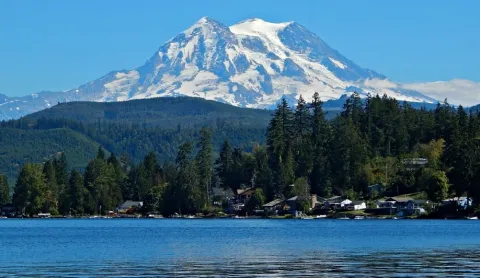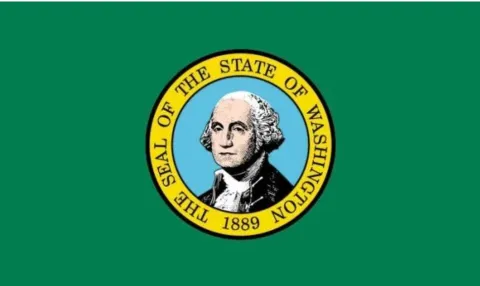
Retiring in Washington State offers a unique blend of natural beauty, vibrant culture, and quality amenities. This article explores the state's suitability for retirees by examining various factors, including overall quality of life, cost of living, crime and safety, access to healthcare, weather, and culture. Each aspect is compared to national averages to provide a comprehensive overview.
Washington State boasts a high quality of life, characterized by stunning landscapes, a strong economy, and a focus on outdoor activities. The state's natural beauty, from the rugged coastline to the majestic mountains, offers numerous recreational opportunities. The state's urban centers, like Seattle and Spokane, provide a mix of cultural activities, dining, and shopping options.
In terms of overall well-being, Washington consistently ranks above the national average. It has a robust economy, a relatively high median household income, and a strong emphasis on education and public services. However, some may find the state's fast pace and growth challenging, particularly in metropolitan areas.
The cost of living in Washington State is notably higher than the national average, especially in urban areas like Seattle, Bellevue, and Redmond. Housing costs are a significant factor, with real estate prices considerably above the national median. However, Washington's lack of state income tax can offset some of the higher living costs, making it a more tax-friendly state for retirees with fixed incomes.
While groceries, utilities, and transportation costs are also higher than the national average, many retirees find value in the state's amenities, such as its well-maintained parks and public facilities. Additionally, rural areas and smaller cities offer more affordable living options compared to the state's major urban centers.
Washington State's crime rates vary significantly between urban and rural areas. While cities like Seattle and Tacoma have higher crime rates than the national average, many smaller towns and rural areas boast lower crime rates. Overall, Washington's crime rate is slightly above the national average, with property crime being more prevalent than violent crime.
Retirees seeking a safe and quiet environment may find comfort in smaller towns like Wenatchee, Bellingham, or Port Townsend, which offer a lower crime rate and a strong sense of community. The state's law enforcement agencies are generally well-funded and proactive, contributing to a relatively safe environment overall.
Washington State provides excellent access to healthcare, with numerous high-quality hospitals and medical facilities. The state is home to some top-rated medical centers, such as the University of Washington Medical Center and Virginia Mason Medical Center, which are renowned for their specialized care and research.
Compared to the national average, Washington offers more healthcare providers per capita and better access to preventive services. The state also has a robust healthcare infrastructure, with a strong emphasis on senior care and wellness programs. However, healthcare costs can be higher, especially in urban areas, but the quality and availability of services often justify the expense.
Washington State has a unique tax structure that results in a moderate overall tax burden compared to other U.S. states. The state does not impose a personal income tax, which can make it more attractive for higher-income individuals. However, Washington has one of the highest sales tax rates in the country, which can disproportionately affect lower-income residents. Additionally, property taxes in Washington are relatively high, contributing to the overall tax burden.
When compared to other states, Washington's lack of an income tax helps keep its overall tax burden lower than in states with high income taxes, like California and New York. However, the reliance on sales and property taxes places Washington around the middle of the pack in national rankings. The state's tax system is often seen as regressive, meaning it takes a larger percentage of income from low-income residents than from high-income residents. This balance of no income tax with high sales and property taxes creates a mixed picture for taxpayers in Washington.
Washington's culture is a vibrant blend of outdoor recreation, arts, and innovation. The state is known for its strong music and arts scene, particularly in Seattle, which has a rich history in music, theatre, and visual arts. Washington is also home to a thriving tech industry, fostering a culture of innovation and entrepreneurship.
Compared to the national average, Washington offers a more progressive and diverse cultural environment. The state is a hub for outdoor enthusiasts, with ample opportunities for hiking, skiing, and water sports. Additionally, Washington's culinary scene is exceptional, with a focus on fresh, locally-sourced ingredients.
Washington's climate is diverse, offering a range of weather conditions depending on the region. The western part of the state, including Seattle, is known for its mild, wet winters and cool summers, with an annual rainfall higher than the national average. In contrast, the eastern part of the state experiences a semi-arid climate with more sunshine and less precipitation.
For retirees, Washington's climate can be a mixed blessing. Those who enjoy mild temperatures and lush greenery may find the western region appealing, while those who prefer more sunshine and less rain might favor the eastern areas. Overall, Washington's climate is moderate compared to the national average, with fewer extreme weather events.
Washington State offers a compelling mix of benefits for retirees, from high-quality healthcare and beautiful landscapes to a rich cultural scene. While the cost of living and crime rates may be higher than the national average in some areas, the state's overall quality of life, diverse climate, and vibrant culture make it an attractive destination for those seeking an active and fulfilling retirement.




